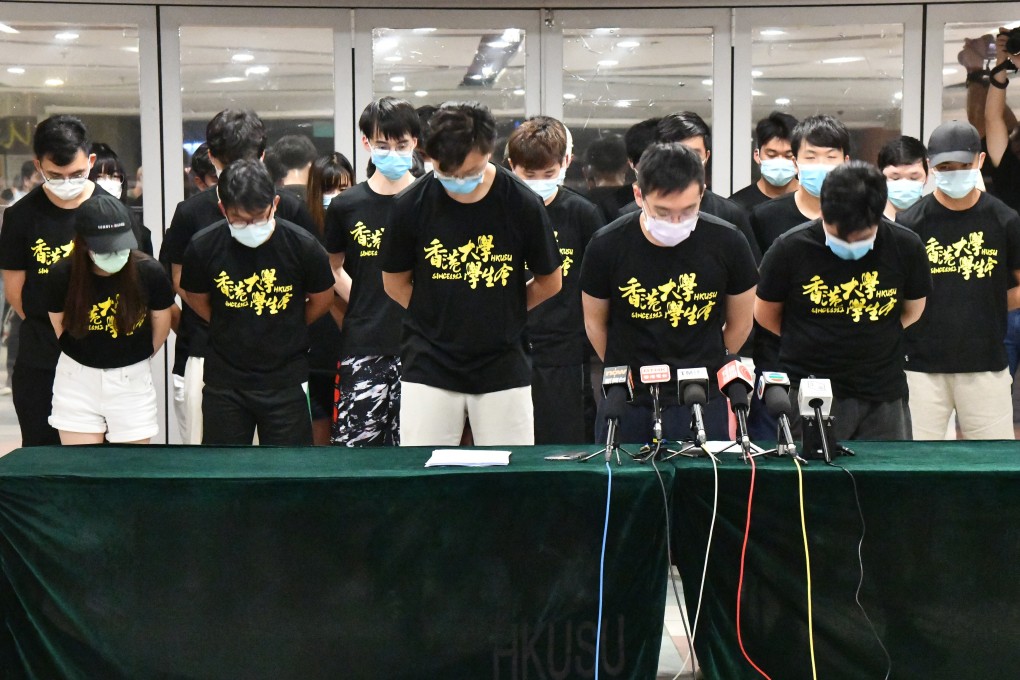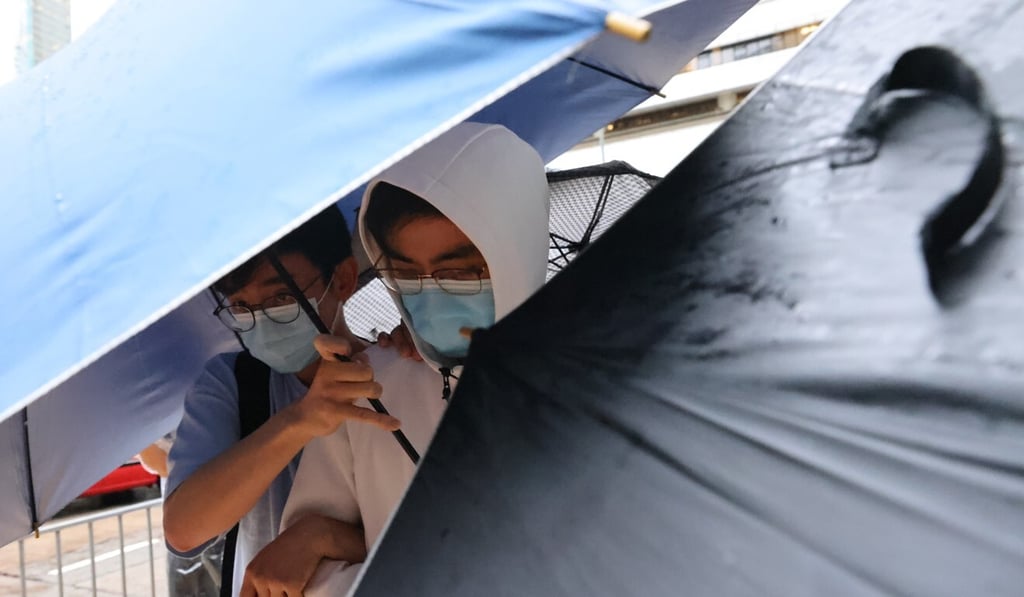National security law: bail granted to three more University of Hong Kong student leaders accused of promoting terrorism
- University of Hong Kong student leaders Charles Kwok, Kinson Cheung and Chris Todorovski had been remanded in custody for 38 days
- Student union council had passed a controversial motion mourning man who stabbed police officer on July 1 before killing himself

The High Court has granted bail to three more University of Hong Kong student leaders accused of promoting terrorism by passing a motion mourning a man who stabbed a police officer before killing himself.
Former student union president Charles Kwok Wing-ho, 20, student union council chairman Kinson Cheung King-sang, 19, and residential hall representative Chris Todorovski Shing-hang, 18, on Friday won bail from Madam Justice Esther Toh Lye-ping after 38 days on remand.
Bail was set at HK$50,000 (US$6,410) each plus HK$50,000 surety from a parent, with conditions that the defendants remain in Hong Kong and live at their respective addresses – which cannot be any of the university’s residential halls – obey a curfew and report to police at least three times a week.

They were further barred from taking part in any student bodies, organising or participating in acts against the Hong Kong and central governments, and contacting any foreign officials.